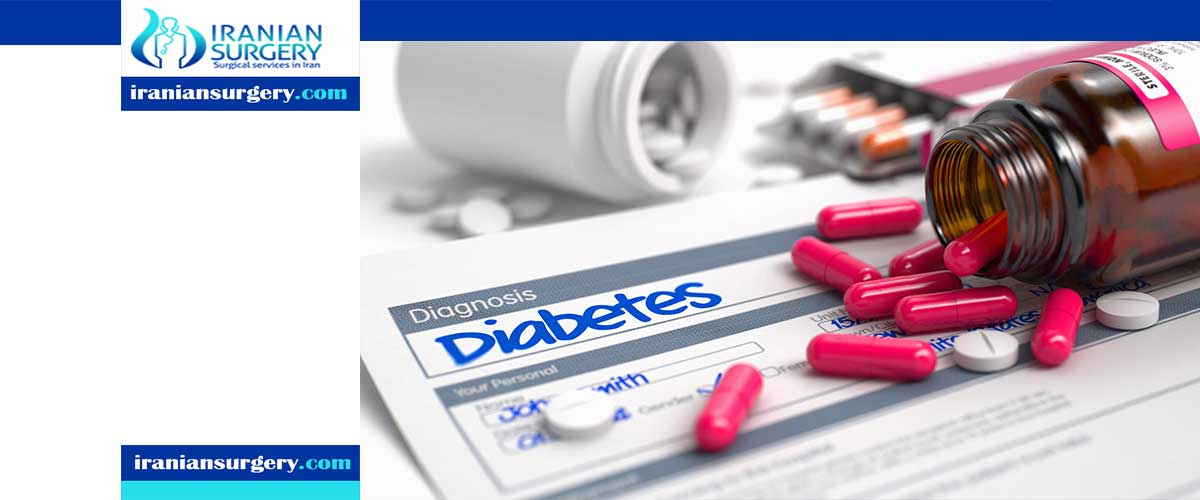diabetes treatment medicine
Medications for type 1 diabetes
- Insulin
Insulin is the most common type of medication used in type 1 diabetes treatment.
If you have type 1 diabetes, your body can’t make its own insulin. The goal of treatment is to replace the insulin that your body can’t make.
Insulin is also used in type 2 diabetes treatment. It’s given by injection and comes in different types. The type of insulin you need depends on how severe your insulin depletion is.
- Amylinomimetic drug
Pramlintide (SymlinPen 120, SymlinPen 60) is an amylinomimetic drug. It’s an injectable drug used before meals.
It works by delaying the time your stomach takes to empty itself. It reduces glucagon secretion after meals. This lowers your blood sugar.
It also reduces appetite through a central mechanism.
Medications for type 2 diabetes
If you have type 2 diabetes, your body makes insulin but no longer uses it well.
Your body can’t make enough insulin to keep your blood sugar levels normal. The goal of treatment for you is to help your body use your insulin better or to get rid of extra sugar in your blood.
Most medications for type 2 diabetes are oral drugs. However, a few come as injections. Some people with type 2 diabetes may also need to take insulin.
- Alpha-glucosidase inhibitors
These medications help your body break down starchy foods and table sugar. This effect lowers your blood sugar levels.
For the best results, you should take these drugs before meals. These drugs include:
- Biguanides
Biguanides decrease how much sugar your liver makes. They decrease how much sugar your intestines absorb, make your body more sensitive to insulin, and help your muscles absorb glucose.
The most common biguanide is metformin (Glucophage, Metformin Hydrochloride ER, Glumetza, Riomet, Fortamet).
Metformin can also be combined with other drugs for type 2 diabetes. It’s an ingredient in the following medications:
- Dopamine agonist
Bromocriptine (Cycloset) is a dopamine agonist.
It’s not known exactly how this drug works to treat type 2 diabetes. It may affect rhythms in your body and prevent insulin resistance.
- Dipeptidyl peptidase-4 (DPP-4) inhibitors
DPP-4 inhibitors help the body continue to make insulin. They work by reducing blood sugar without causing hypoglycemia (low blood sugar).
These drugs can also help the pancreas make more insulin.
- Glucagon-like peptide-1 receptor agonists (GLP-1 receptor agonists)
These drugs are similar to the natural hormone called incretin.
They increase B-cell growth and how much insulin your body uses. They decrease your appetite and how much glucagon your body uses. They also slow stomach emptying.
These are all important actions for people with diabetes.
For some people, atherosclerotic cardiovascular disease, heart failure, or chronic kidney disease may predominate over their diabetes. In these cases, the American Diabetes Association (ADA) recommends certain GLP-1 receptor agonists as part of an antihyperglycemic treatment regimen.
- Meglitinides
These medications help your body release insulin. However, in some cases, they may lower your blood sugar too much.
Sodium-glucose transporter (SGLT) 2 inhibitors
Sodium-glucose transporter (SGLT) 2 inhibitors work by preventing the kidneys from holding on to glucose. Instead, your body gets rid of the glucose through your urine.
In cases where atherosclerotic cardiovascular disease, heart failure, or chronic kidney disease predominate, the ADA recommends SGLT2 inhibitors as a possible treatment option.
- Sulfonylureas
These are among the oldest diabetes drugs still used today. They work by stimulating the pancreas with the help of beta cells. This causes your body to make more insulin.
- Thiazolidinediones
Thiazolidinediones work by decreasing glucose in your liver. They also help your fat cells use insulin better.
These drugs come with an increased risk of heart disease. If your doctor gives you one of these drugs, they’ll watch your heart function during treatment.
Other drugs
People with type 1 and type 2 diabetes often need to take other medications to treat conditions that are common with diabetes.
These drugs can include:
- aspirin for heart health
- drugs for high cholesterol
- high blood pressure medications
10 common questions about Diabetes treatment medicine
[kkstarratings]




1 Comment
Hi, this is an amazing blog and i wana share here, whit you a new discover the odd Diabetes -Sugar Hack- that’s destroing high blood sugar sn thousands –